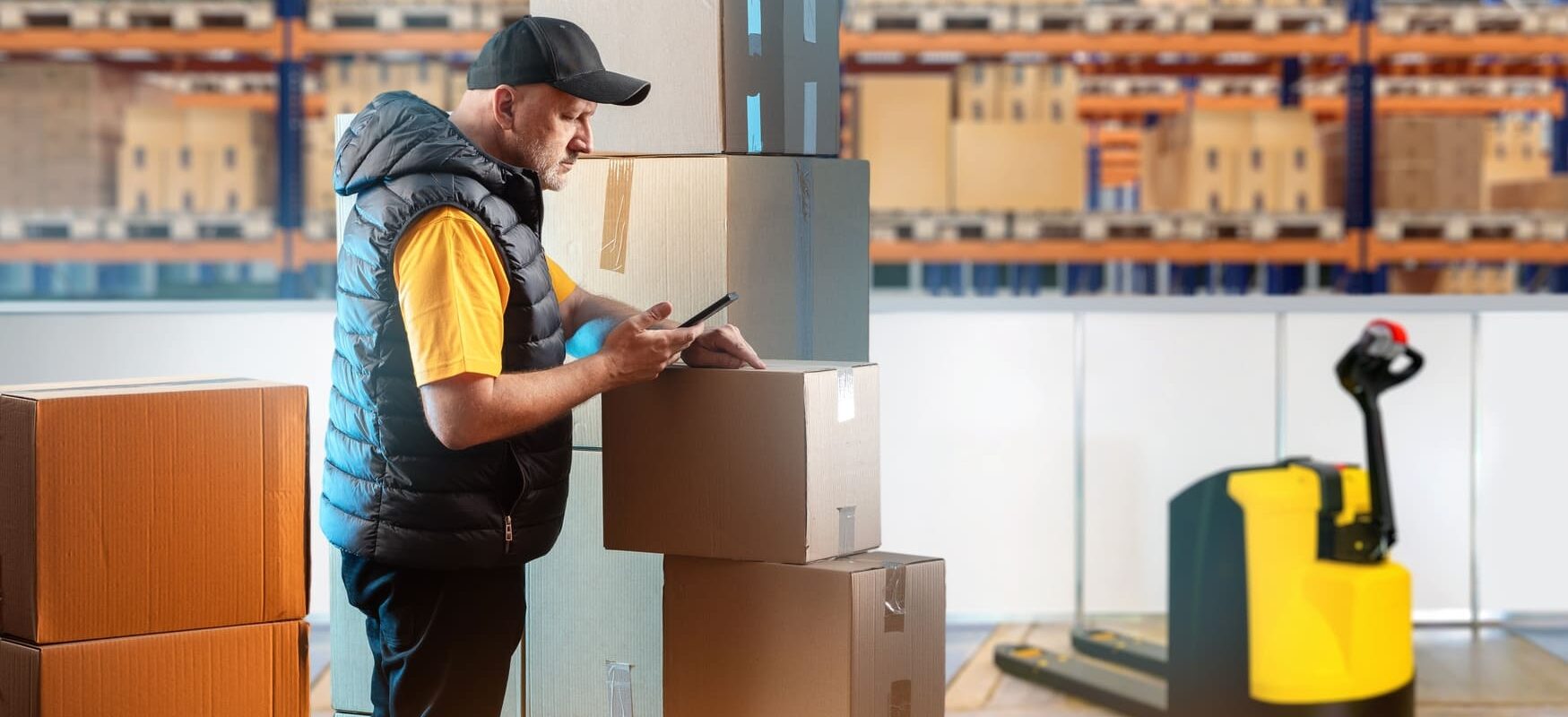Warehouse for Small Businesses: Top Fulfillment Services for Startups & Growing Brands

For small businesses and startups, efficient order fulfillment is critical to scalable growth. Instead of leasing expensive warehouse space or handling shipping in-house, partnering with a small business fulfillment center or using order fulfillment services for small businesses can save money and simplify operations. In this guide, we’ll explain why warehousing and fulfillment services matter for startups, how to find the right fulfillment center for your business, and highlight the best fulfillment companies for startups and small businesses.
Why Small Businesses Need a Warehouse or Fulfillment Service
1.Save Money & Avoid Overhead
Leasing warehouse space means high upfront costs (rent, utilities, staffing). Outsourcing fulfillment lets you pay only for the space you use—no long-term leases.
2.Scale Without Stress
Fulfillment centers are built to scale with your business. As your order volume rises (for example during seasonal surges or fast growth), these providers handle the extra orders and storage without you hiring more staff or moving to a bigger facility.
3. Focus on Growth (Not Logistics)
Outsourcing logistics allows small business owners to concentrate on product development, customer service, and marketing. Let warehousing experts handle inventory, packing, and shipping while you build your brand.
4. Faster, More Reliable Shipping
Strategically located fulfillment centers reduce delivery times and shipping costs. This leads to quicker turnarounds, happier customers, and a competitive edge in fast-moving markets.
5. Access to Technology and Expertise
Fulfillment services often include inventory tracking tools, automated systems, and expert support—giving small businesses access to big-business capabilities without the complexity.
By partnering with a warehouse or fulfillment service tailored to small business order fulfillment, startups avoid the overhead of running a warehouse themselves. In short, a good fulfillment center acts as an “unseen bridge” between your products and your customers.
How to Choose the Right Fulfillment Center for Small Business
Choosing a fulfillment center isn’t just about warehousing, it’s about finding a partner that understands your goals, supports your growth, and fits your scale. Whether you’re a startup or an established small business, here are the most important factors to consider:
1. Focus on Small Business-Friendly Fulfillment Centers
Not all 3PLs cater to startups. Prioritize fulfillment services that:
- Low or No Minimums: Many small businesses ship few orders at first. Look for providers with no minimum order requirements or low starting fees. For example, some fulfillment centers waive monthly fees or have pay-as-you-go plans that grow with you.
- Flexible Services: Find centers that handle custom packaging, kitting, returns support, or temperature-sensitive products if you need them. A provider with broader capabilities helps you avoid switching later.
- Personalized Support: Single-location or small-chain fulfillment centers often give more dedicated service to small clients. They may offer a personal account manager and faster responsiveness as you scale up.
2. Come Prepared with Key Business Info
Fulfillment centers will want to know you’re serious. Present your business professionally by having:
- A basic website, business email, and contact information
- A clear understanding of your inventory needs and expected delivery timelines
- A list of any special handling needs, like temperature-sensitive items or fragile goods
3. Show That You’re Ready to Scale
Fulfillment providers often look for businesses with growth potential. Strengthen your case by:
- Sharing your business plan or roadmap if available
- Highlighting any market research or demand you’ve already generated
- Demonstrating how fulfillment support will help you scale faster
4. Understand Fulfillment Center Requirements
Before committing, make sure you know the typical requirements:
- Monthly order minimums (often between 50–200 orders or a growth plan in place)
- Minimum monthly spend, which could be around $500 regardless of order volume
- Storage expectations, such as a set number of pallets per month
- Check if the provider offers a trial period to grow into their requirements
5. Evaluate Services and Tech Capabilities
Look for a fulfillment partner that offers:
- Seamless integration with your sales platforms (e.g., Shopify, Amazon, WooCommerce)
- Real-time inventory tracking and reporting tools
- Additional support for returns, branded packaging, or kitting
6. Choose the Right Location
Location isn’t one-size-fits-all. Think strategically:
- Near your customer base to reduce shipping costs and time
- West Coast if your inventory arrives from Asia
- East Coast if you’re importing from Europe
- Central U.S. to balance national shipping times and costs
7. Look for a True Partner, Not Just a Vendor
The best fulfillment providers understand the ups and downs of entrepreneurship. Favor companies that:
- Offer a dedicated account manager
- Respond quickly and professionally
- Are flexible and transparent as your business evolves
Benefits of Fulfillment Services for Startups and Small Businesses
Using a fulfillment center offers several key benefits for startups:
- Low or No Minimums: Many 3PLs waive monthly fees or set very low usage thresholds for small clients.
- Cost Savings: Outsourcing fulfillment removes the overhead of hiring staff or leasing a warehouse. You pay only for active services, which can reduce your overall costs.
- Access to Expertise: Small businesses gain the benefit of industry-best practices, warehousing software, and shipping networks typically only available to big companies.
- Risk Mitigation: By splitting orders across a reliable partner (e.g. ShipBob or Deliverr) you mitigate risks like shipment delays and focus on sales instead of logistics.
- Scalable Growth: As noted, centers easily absorb growing order volumes, letting startups ramp up quickly without major new investments.
Taken together, these advantages help startups compete on speed and efficiency. Modern fulfillment partners can process all of a startup’s orders within 24–48 hours, offering 2-day shipping in many cases.
Conclusion
Finding the right warehouse partner can improve operations and support small business growth. Providers like ShipBob and Red Stag offer flexible solutions, whether you’re just starting out or expanding. Prioritizing cost, location, and tech integration helps simplify fulfillment and free up time for growth.
Top search results aren’t always the most reliable—many are paid placements. Our trusted network, built on honest reviews, connects you with dependable warehousing options without the guesswork.
Many fulfillment services focus on larger clients, but most businesses need support for smaller volumes. By filling out a quick form or contacting us, you’ll get matched with providers who understand and support businesses like yours.
Frequently Asked Questions (FAQ) – OLIMP Warehousing
Q: What’s the cheapest fulfillment service for small businesses?
Providers like Deliverr and ShipBob often offer competitive pay-as-you-go pricing for low-volume sellers, making them popular among startups. To find the cheapest option, compare startup-friendly 3PLs that waive setup fees or minimums.
Q: How much does a warehouse for small business cost?
Costs vary widely by location and service level. Generally, third-party fulfillment centers charge based on space (for example, ~$20–50 per pallet per month) plus picking/packing fees per order. Plan for pallet or shelf storage fees, receiving fees, and any extra services (kitting, returns, etc.).
Q: Can startups use fulfillment centers?
Absolutely. Many fulfillment providers specialize in startup and small business needs, offering flexible contracts with no long-term commitment. This means even very young companies can outsource logistics early on.
Q: What’s the difference between a warehouse and a fulfillment center?
A warehouse is mainly for storage. In contrast, a fulfillment center handles the full order process: picking items for each order, packing them, shipping to the customer, and often managing returns. In other words, fulfillment centers focus on fast order processing for direct-to-consumer sales, while a simple warehouse might just hold bulk inventory.
Q: How do I find a small business fulfillment center near me?
Use OLIMP Warehousing Platform to compare local providers by services and reviews.
Q: How much does order fulfillment cost for small businesses?
The average cost of fulfillment for small businesses typically ranges from $3 to $10 per order, depending on factors like order volume, storage space, packaging needs, and shipping methods. In addition to per-order fees, many fulfillment centers also charge for monthly storage, receiving inventory, and add-on services like kitting or returns. Some providers offer pricing models based on a percentage of sales instead of flat fees, which can be beneficial for startups with fluctuating order volumes.
Q: What is the ideal order fulfillment process for small businesses?
The perfect order fulfillment process flows seamlessly: Receive orders automatically, verify inventory, pick items efficiently, pack with care, choose the optimal carrier, ship promptly with tracking, handle returns smoothly, and analyze performance to continuously improve—all while keeping costs low and customers happy.
Q: Should my startup use one fulfillment center or multiple warehouse locations?
If you’re just starting out, using one centralized fulfillment center is often the smartest move. It keeps operations simple, lowers overhead, and makes inventory management easier. As your business scales and you begin shipping to customers across different regions, expanding to multiple warehouse locations can help cut shipping times and reduce delivery costs by storing products closer to buyers. That said, managing multiple sites adds complexity and is best suited for startups with high order volumes and strong logistics systems already in place.
You may be interested in

Best 3PL Warehouse for Your TikTok Shop Fulfillment
TikTok Shop sellers often face sudden viral demand. A specialized 3PL (third-party logistics) partner helps by handling warehousing, order picking, packing, shipping, and returns. This article explains why TikTok sellers need dedicated TikTok fulfillment services and what features to look for in a TikTok fulfillment center. Why TikTok Sellers Need a Specialized 3PL Fulfillment Company […]

The Future of Ecommerce Warehousing: How Online Retail is Shaping the Industry
The rapid rise of online retail has fundamentally reshaped the warehousing industry, driving demand for more efficient, scalable, and technology-driven storage and fulfillment solutions. Warehousing, once a back-end support function, is now a strategic cornerstone of ecommerce operations. Consumers expect ever-faster delivery (same-day shipping is increasingly common) and hassle-free returns, pressuring businesses to store products […]

Third-Party Logistics (3PL) Warehousing and Distribution: Process and Tips
Ecommerce businesses rely on trusted partners to manage inventory and fulfill sales, with 3PL Warehousing and Distribution providers being key players in the process. A 3PL partner takes charge of essential supply chain operations such as inventory storage, order fulfillment, and shipping, allowing businesses to focus on what they do best. Effective logistics management is […]
Ready to streamline your warehousing needs?
Request a quote today and discover how OLIMP's tailored solutions can optimize your operations